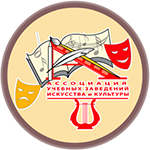Dramaturgy
Bachelor’s Degree and Master’s Degree


Screenplay is the basis of a film. Ability to write a story that the director wants to turn into a film depends on the talent of a playwright. But any talent requires the development of skills and finding your own style during student years. The program "52.03.06 Dramaturgy" provides an excellent opportunity to achieve this.
Future screenwriters are guided by supervisors – famous playwrights and scriptwriters. Among them are the winner of the State Prize of the USSR screenwriter Yuri Klepikov ("Mother married", "Dauria", "Climbing", "Summer trip to the sea", "Guys"), screenwriters, laureates of international and all-Russian festivals and competitions Nikolai Vinokurov, Polina Stepanova, Anna Ganshina, Irina Efimova and others. All of them are deeply involved in the modern filming process.
Future screenwriters are trained at the Department of Dramaturgy and Film Studies headed by Doctor of Art History, Professor, author of scripts and monographs on drama, winner of All-Russian competitions Svetlana Melnikova.
During the training, students learn all genres and formats of cinema. Students-screenwriters fulfill their course and degree projects together with future directors, cameramen and sound producers. The qualification work of the program is a feature film script.
Graduates take part in cinematographic and literary processes as authors of screenplays, literary versions for TV and radio programmes. They also work as editors at film studios, production centres, editorial offices of magazines and newspapers, TV studios and channels.
Curriculum Disciplines
Basic part: philosophy; history; basic foreign language; professional foreign language; Russian language and speech standards; history of national cinematography; history of foreign cinematography; history of foreign literature; history of Russian literature; history of world theatre; history of Russian theatre; history of foreign theatre; history of Russian fine art; history of foreign fine art; economy in the field of filmmaking; information systems and technologies; theory of dramaturgy; screenwriter mastery; dramaturgy of the modern play; screenplay editing.
Variable part: stylistics and literary editing; theory of literature; film theory; literature and cinema; non-fiction film script; dramaturgy of modern film; dramaturgy of television series; basics of the state cultural policy in the Russian Federation.
Electives: labour law and copyright; jurisprudence; psychology of creativity; psychology of mass consciousness; history of religion; aesthetics; film education and media education; methods and technologies of film education; history and theory of non-fiction films; psychology of perception of audio-visual works; music theory; history and theory of television; film sound solutions; film graphic solutions; film production; project management and basics of producing; material culture history; history and theory of film critics; Russian literature abroad; art culture; basics of acting; camera art; film directing; mastery of the film artist; analysis of a play; film analysis; personnel management; organizational behaviour.
Education at master’s degree level supposes advanced proficiency in mastering film dramaturgy and scientific understanding of the filmmaking process in order to write a master's thesis.
Graduates can take part in the cinematographic and literary process as authors of scripts, creators of the literary basis for television and radio programmes. They are also engaged in the analysis of film and television drama in the special and general press, work as editors at film studios, in production centres, editorial offices of newspapers and magazines, television productions, and teach in educational institutions.
The training of master’s degree students is carried out at the Department of Scenery Art "School of Viktor Ivanovich Merezhko".
Curriculum Disciplines
Basic part: the methodology of scientific research in art history; modern problems of science and art; basics of pedagogy; screenwriting mastery; professional foreign language.
Variable part: film theory; dramaturgy of modern film; history of Russian and world cinema; dramaturgy of TV series; genre cinema; film structure; modern visual art; film anthropology; history of Eastern cinema.
Electives: modern film trends; history of Russian and foreign theatre; theatre art; filmmaking; verbatim; film analysis; script editing; montage; visual communication; visual research.

The Association of Educational Institutions of Art and Culture, which includes SPbGIKiT, won a grant from the President of the Russian Federation for the project "Second Higher Education as a Factor in Increasing the Level of Training of Specialists in Creative Professions"
